There are so many ways to go about weight loss, and oftentimes, a strict diet is not required to see movement on the scale. In fact, a collection of healthy habits for weight loss can help you work toward your goal weight and may even aid in the longevity of your progress. Keep in mind that losing 50 pounds could take six months for some people, while others might see their progress over the course of a year. There is no ideal timeframe for weight loss, and progress is progress, no matter how long it takes. We’ve rounded up some of our best tips on how to lose 50 pounds or more that you’ll want to keep handy.
Choosing habits that work within your lifestyle while allowing you to work toward your goals is key. The foods you eat, portions, food pairings, and timing of meals and snacks play significant roles in weight loss. However, you can’t discount the importance of other lifestyle factors. Sleep, stress management, and exercise also contribute to weight loss and overall health. If you are trying to lose 50 pounds or more, focus on several areas of your wellness to maximize your results. That means instead of just focusing on exercise, make sure you pay attention to your eating habits, stress, and sleep as well.
If overhauling your lifestyle for weight loss sounds intimidating, start small. Choose a few habits from this list to start with, and as you feel more confident in incorporating them into your regular routine, improve more habits. You can make significant improvements to your lifestyle over time, contributing to weight loss. Here is how to lose 50 pounds or more. Keep reading to learn our best tips, and when you’re done, don’t miss out on these 7 Habits To Slim Down a Thick Waist in 30 Days.
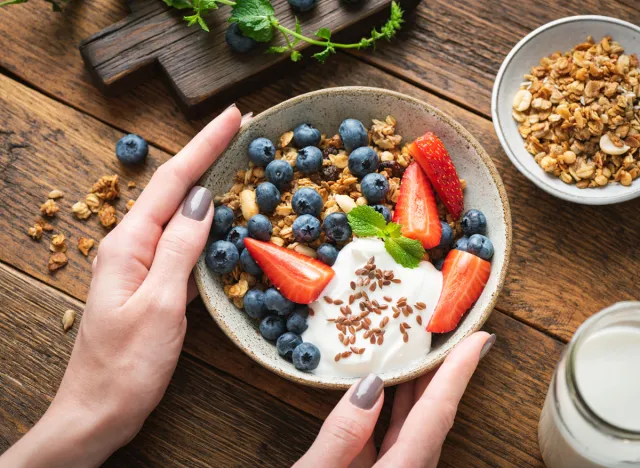
Protein is an incredibly satiating ingredient and can help you feel full and satisfied longer between eating. Instead of having just a bowl of cereal for breakfast or a sugary granola bar for your morning snack, incorporate protein into each meal and snack. Serve your cereal over cottage cheese or Greek yogurt, and swap your granola bar for a protein bar, like Quantum Energy Square which packs 10 grams of plant-based protein. These bars also provide four grams of fiber to improve satiety and slow the absorption of glucose. Bonus points? These bars contain organic green coffee equivalent to one cup of joe. This makes for a great pre-workout snack that provides an energy boost without the jitters that often come along with caffeinated workout supplements.
For other easy protein ideas, you can cook meat in bulk to add to meals throughout the week, make hard-boiled eggs for a fast snack, and use low-prep protein sources, like nuts, seeds, and cheese for meal and snack additions.

Fiber is a form of carbohydrate that has a very filling effect, similar to protein. This nutrient also benefits the digestive tract and slows the absorption of glucose in your body to create more stable energy. Based on age and gender, adults should consume 22 to 34 grams of fiber per day. To do this, choose whole grain carbs, eat several servings of produce daily, increase the nuts and seeds in your diet, and compare the fiber content of manufactured foods, like cereal, bread, and crackers.
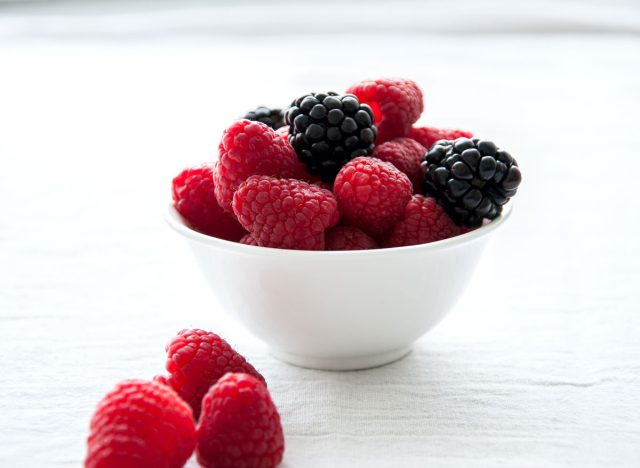
Research shows most adults don’t eat enough produce on a daily basis. This can leave you short on fiber intake and limits the number of essential vitamins and minerals you consume in a day. Aim for five servings of produce each day. This could be a cup of berries in your oatmeal, an apple and string cheese for snack, a large salad for lunch, baby carrots with hummus in the afternoon, and a side dish of roasted broccoli at dinner. Incorporating fruits and veggies into your routine doesn’t have to add complexity to your meal planning. Enjoy raw fruits and veggies for simplicity, and use convenient steam-in-bag veggie options and bagged salad kits for easy ways to boost produce intake.
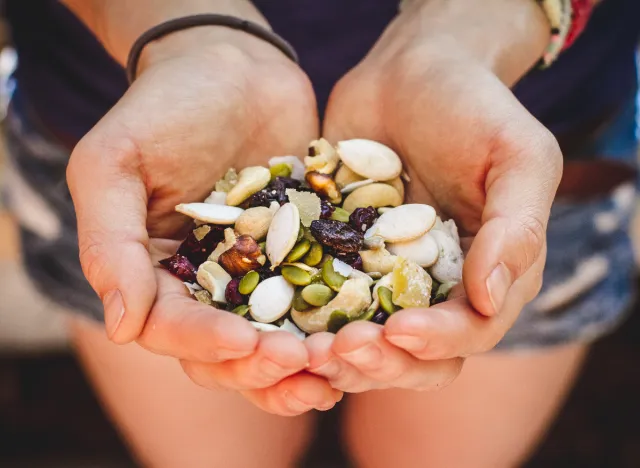
Exercise can drastically increase your energy expenditure, and skipping a meal or snack after your workout can hinder your weight loss goals and leave you starving later in the day. By eating after exercise, you will also be benefiting your muscle recovery. A source of protein and carbs within 45 minutes of finishing your workouts should be the goal. A simple snack of Greek yogurt with berries, a small handful of trail mix with dried fruit, or a balanced breakfast after an early morning workout are ideas for better eating habits post-exercise.
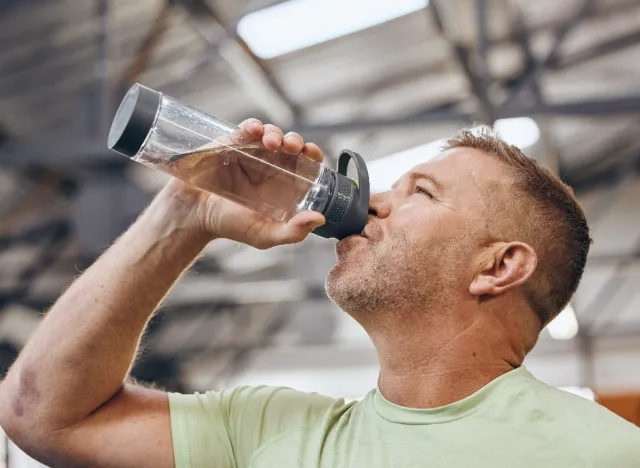
When you don’t drink enough fluids, you may experience symptoms similar to hunger. These could include lethargy, lightheadedness, and trouble concentrating. If you experience one of these symptoms, let alone multiple, you may be inclined to grab a snack. This could lead to overeating throughout the day, making weight loss more challenging.
Improving your hydration is one way to reduce symptoms that could be confused with hunger. Although there is not one amount of fluid that meets everyone’s needs, you should be drinking frequently throughout the day. Pay attention to your urine color with the goal of very pale yellow or clear urine within a few hours of waking up. A minimum of 80 ounces of total fluid per day, at least half coming from water, is a goal that meets the needs of many people.
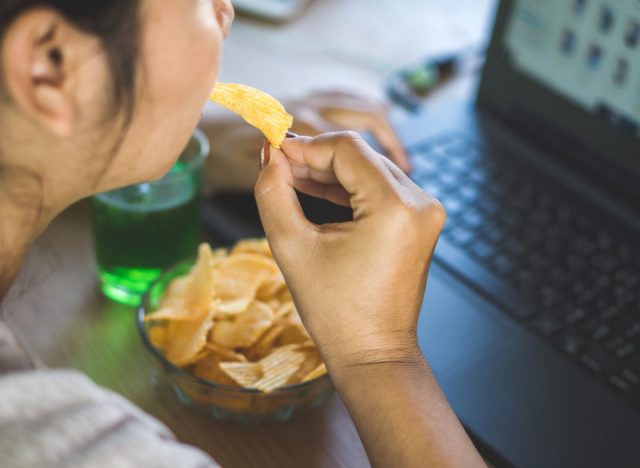
When it comes to eating, intention is important. This means you are choosing to eat for a specific purpose (ie. it has been three hours since your last meal or you just finished a workout) rather than eating just because food is easily accessible. Mindless eating can contribute significant calories to your day, many of which are empty calories that don’t contribute to fullness. While eating for enjoyment can be part of a healthy eating approach, it shouldn’t be the main approach to food. Purposefully choose nutritious foods that help you feel good, allow you to make progress toward your goals, and contribute to your overall nutrient intake.
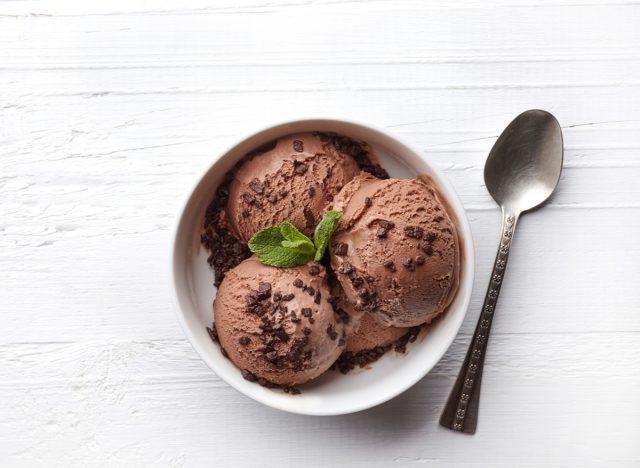
Refined sugar, which is found in pastries, desserts, sauces, soda, and more, can promote obesity and contribute to the risk of chronic disease, according to research. You may be surprised at how many of your common foods and drinks contain sugar, so take inventory as you begin your weight loss journey.
The American Heart Association (AHA) recommends men consume only up to 150 calories a day of added sugars and women up to 100 calories daily. If you find yourself eating and drinking over these respective numbers, here are some ways to cut back. Use half as much sugar in your morning coffee, trade your evening ice cream for a square of dark chocolate, and swap the afternoon candy bowl visit with a more filling snack, like an apple with peanut butter.
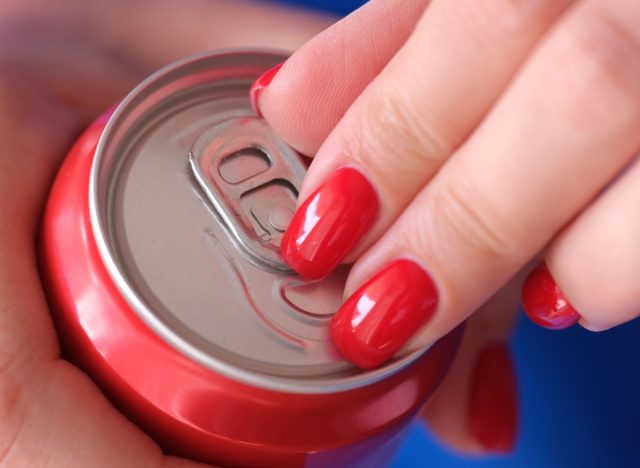
Liquids can be a sneaky source of added sugar. Soda may be the most obvious sweetened drink, but don’t overlook the added sugar in other common beverages. Sweet tea, lemonade, juice, sweetened coffee drinks, and energy drinks only begin to list the drinks with added sugar. Even drinks you may consider to be healthy options, like kombucha and coconut water, can have several grams of added sugar. These drinks can contribute significant calories to your day, making weight loss more challenging.
To maximize your weight loss efforts, skip liquid calories as often as possible, and choose plain water as a main source of hydration. Unsweetened tea and unsweetened sparkling water are other beverages you can incorporate into your hydration that won’t detract from your weight goals.

Talking to a friend who is on a similar journey, hiring a dietitian or trainer for guidance, and using online tracking tools are examples of accountability. The extra set of eyes may help you stay on track with the habits that will help you ultimately meet your weight loss goals. Sharing your goals with other people can help keep you on track during times when your motivation may be lacking. And, working alongside others with similar goals provides a support network for a process that can be physically and emotionally challenging.

When trying to lose weight, you are more likely to have success when you prepare the majority of your foods. While you can choose reasonable options when eating out, even healthy restaurant and fast-food selections can pack a surprising number of calories and lack important nutrients, like fiber.
The good news is cooking doesn’t have to be expensive or take up all of your spare time. A healthy homemade meal for weight loss can be as simple as skinless rotisserie chicken served over microwaved brown rice and a side of steamed broccoli. A meal like this can take fewer than 10 minutes to prepare, packs essential nutrients, and can easily be portioned to meet your personal needs.
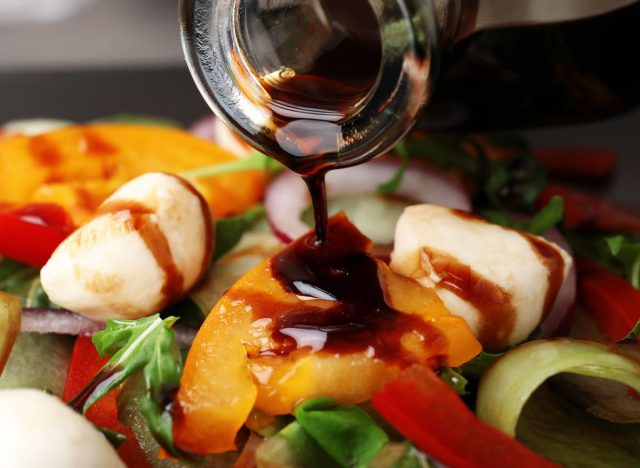
When you do eat out, don’t be afraid to ask for modifications on your meal. Dressing, sauces, and oil are examples of ingredients you are better off modifying to keep calories more reasonable at a restaurant. For example, order your salad with dressing on the side so you can decide how much to use. Similarly, if your dish includes a sauce, ask for that on the side so you can choose your portion. In the case of vegetables, you can ask for light oil to be used during preparation or skip the oil altogether and modify your roasted vegetable to a steamed option to keep it light.
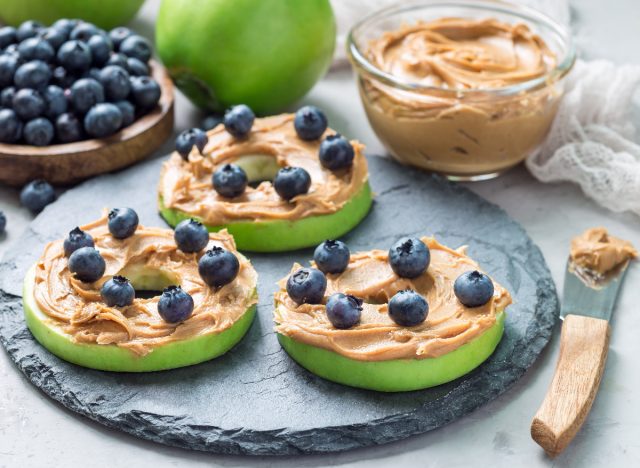
It may be convenient to grab a cereal bar for breakfast as you head out the door or eat only a banana when you need a quick snack, but pairing carbs with fat and protein may help you lose weight. Carb-based foods usually aren’t as filling as those made with protein and fat and may lead to a spike and crash of energy when eaten on their own. Instead of just a cereal bar for breakfast, pair it with some nuts for an easy way to incorporate protein and fat. Fruit makes a great snack, but pair it with nut butter, cheese, Greek yogurt, or nuts for a more balanced option that will improve satiety.
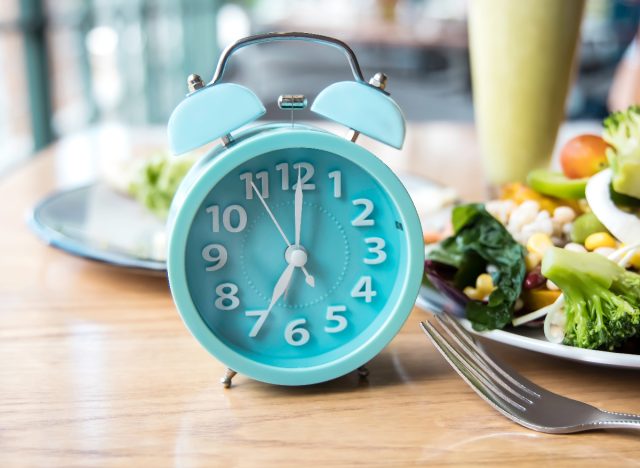
Eating too close to bed could lead to a higher calorie intake and weight gain. Lying down shortly after eating may also cause other uncomfortable symptoms, like reflux. To maximize weight loss and improve your overall sleep quality, have your final food of the day at least two hours before you plan to go to bed. This doesn’t mean you have to skip your nightly square of dark chocolate or reasonable dessert, just have it a little earlier to work within the two-hour guideline.
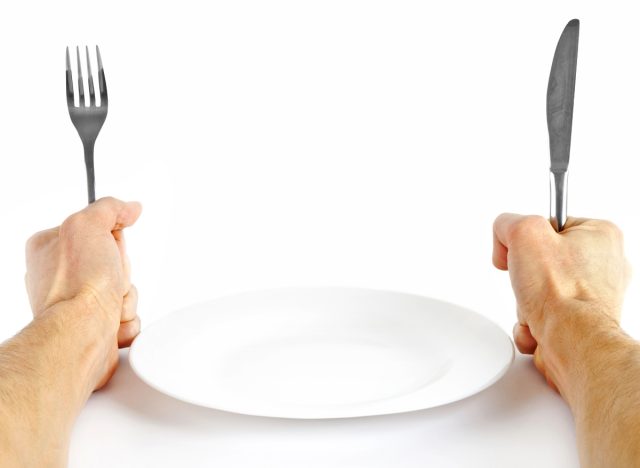
Sticking to an eating schedule throughout the day may contribute to your weight loss success. This can keep you from becoming so ravenous that it is hard to make good food choices and control portion sizes.
Have you ever skipped lunch and found yourself with a huge appetite by the time dinner rolled around? This is the case for many people and can be avoided with more frequent eating during the day. Aim to go no longer than four hours without eating to maintain more reasonable levels of hunger and avoid the overeating that often accompanies skipped meals and snacks.
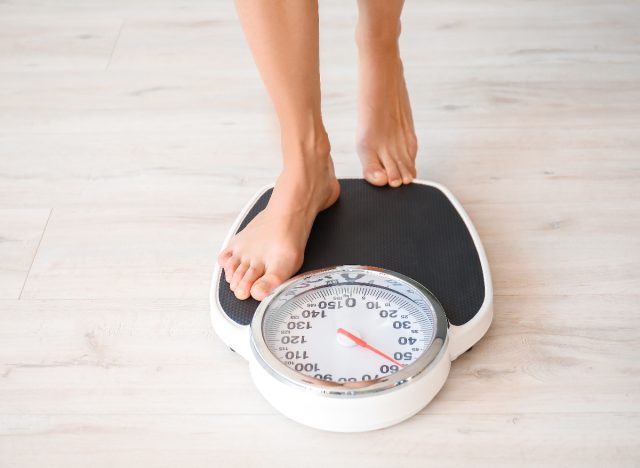
Losing 50 pounds is a great accomplishment—one that will take commitment over a period of time. Don’t be discouraged if you notice less weight loss some weeks compared to others, and know losing weight is not always a linear process. Even if you sometimes see a small increase in weight, if your overall trend is down from the start of your journey, you are moving in the right direction.
Maintainable habits that fit into your lifestyle are important. If the habits you practice to lose weight feel doable, you are more likely to stick with them for the long haul. This not only aids weight loss, but can contribute to weight maintenance once you meet your goal.

